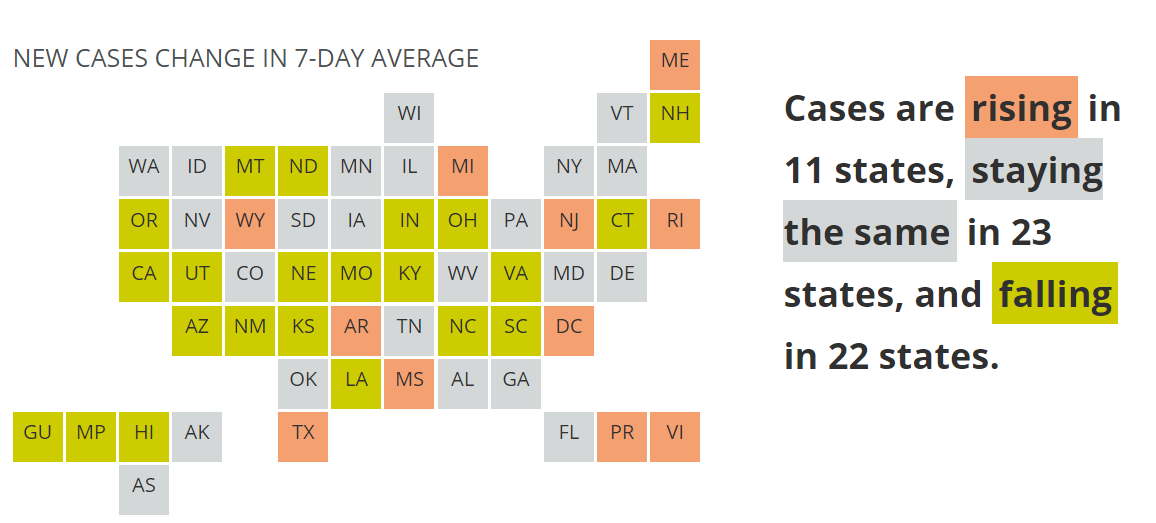Week in Washington is brought to you by Michael Cohen, PhD. Tune in each week to read the latest on healthcare policy and get a glimpse of what’s on the horizon.
Week in Washington
3/04/2021
Legislation
The focus in Washington continues to be on the American Recovery Plan. The bill was passed last week by the House. The Senate is currently debating the bill and what changes should be included. A number of provisions are being considered changed, from increasing the COBRA subsidy, changing the stimulus amounts, including provider funding, reducing state funding, and others. The Senate is expected to vote on some version of the bill in the next week, where, if passed, it would go back to the House for a final vote before heading to the President’s desk.
COVID
While data irregularities continue to have some impact on data, generally, it appears that case declines have leveled off in many (if not most) states. However, hospitalizations have continued to decline fairly rapidly (15.8% in the past week). As more at-risk individuals are vaccinated, at least in the short-term, there is likely to be a divergence from historical patterns of correlation between cases and hospitalization (i.e., case increases won’t lead to as many hospitalizations.)

Vaccines
Last week the FDA gave emergency authorization to Johnson and Johnson’s vaccine. This news, as well as encouraging news on vaccine production, led President Biden to announce there should be enough vaccines for every US adult by the end of May. This past week, for the first time, the average number of vaccine doses administered exceeded 2 million per day.
CMS News of Note
- CMS announced that the Geographic Direct Contracting Model is currently under review.
- CMS also announced that 206,000 enrollees signed up in the first two weeks of the Special Enrollment Period for the Healthcare.gov Exchanges. Last year about 76,000 signed up during the same time frame. The fairly open SEP runs until May 15 for most states.
Research of Note
- Sungchul Park et al. found that rural enrollees in Medicare were far more common to switch from Medicare Advantage to traditional Medicare than non-rural enrollees (10.5% to 5.0%). The authors found that that dissatisfaction with care access had the strongest association with switching from MA to traditional Medicare for rural enrollees.
- KFF released an analysis on FAIR Health and Marketscan data found that if employers and privately insured plans had Medicare reimbursement rates, total health spending would be lower by about $350 billion in 2021.
Previous editions:
2/25/2021: Week in Washington
2/18/2021: Week in Washington
2/11/2021: Week in Washington
2/04/2021: Week in Washington
1/28/2021: Week in Washington
1/21/2021: Week in Washington
1/14/2021: Week in Washington
1/08/2021: Week in Washington: The Year Ahead